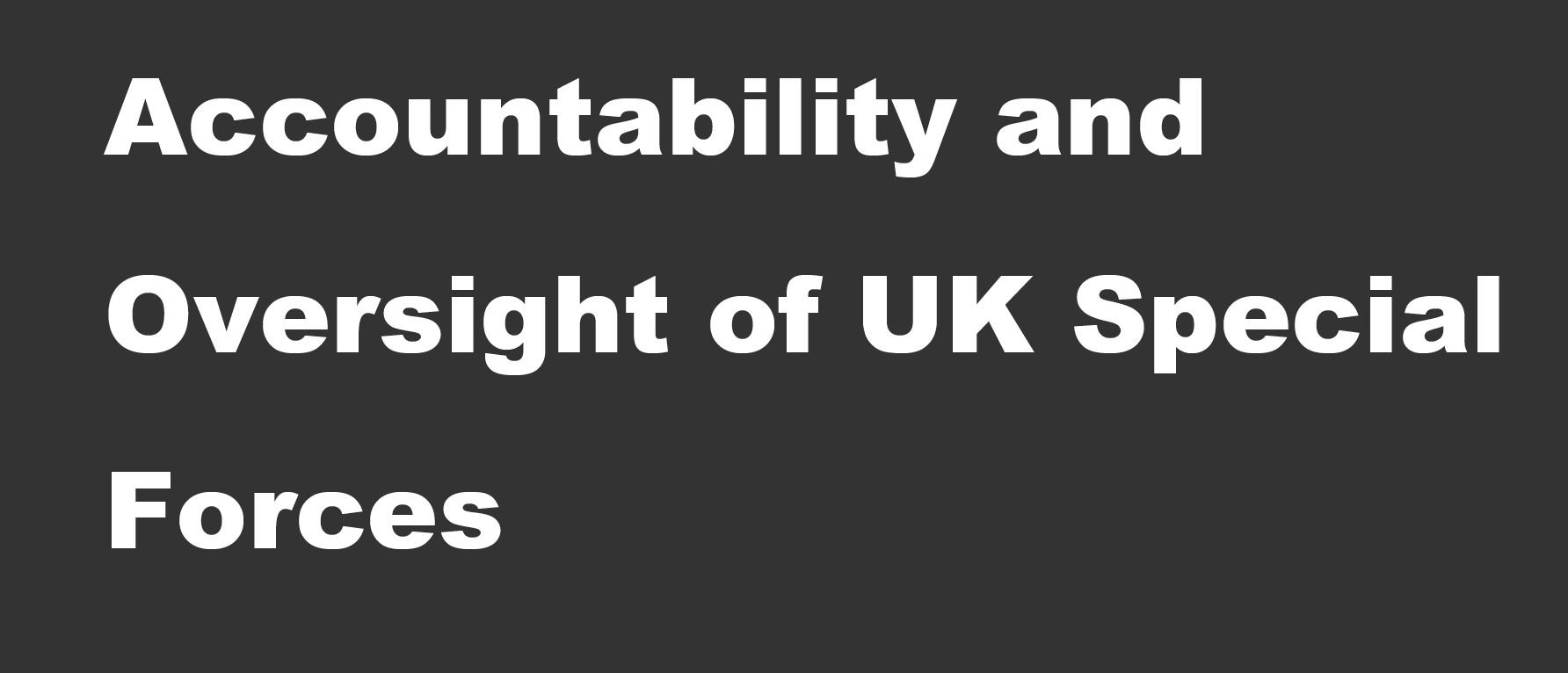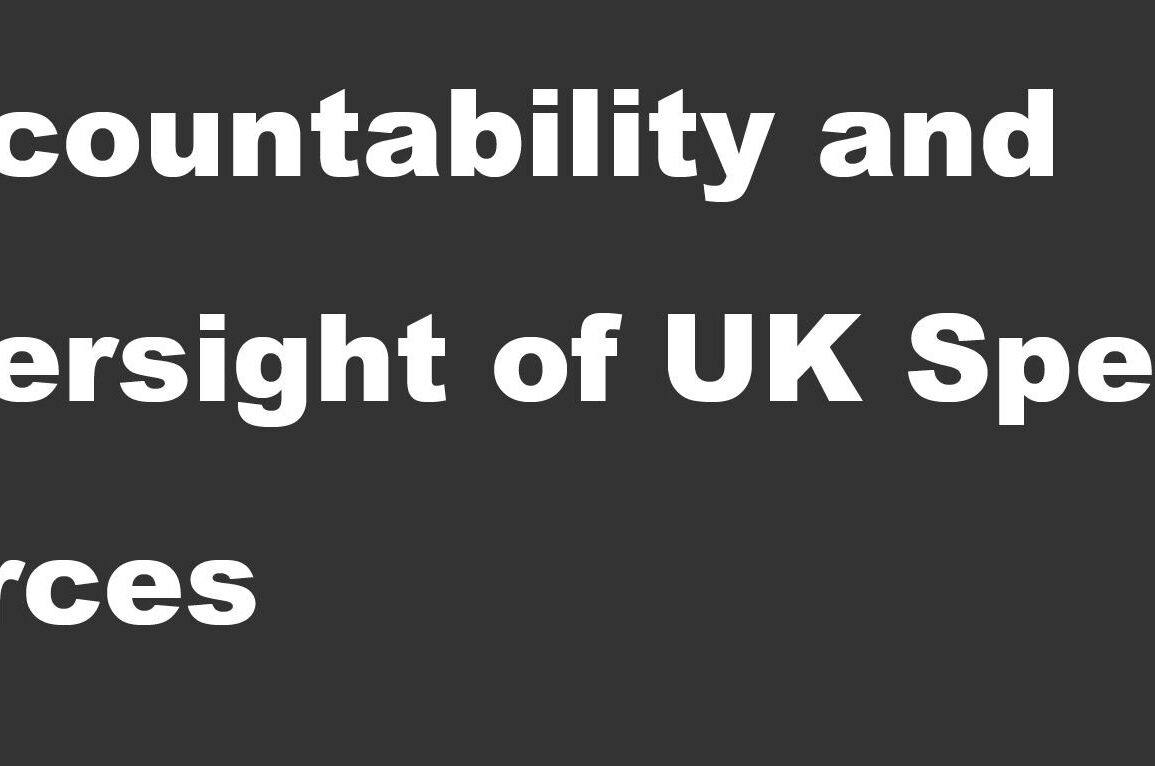
The report by the University of Essex for the APPG on Modern Conflict “Accountability and Oversight of UK Special Forces” delves into the United Kingdom’s existing approach to its Special Forces, particularly focusing on the implications of the ‘no comment’ policy that prohibits external investigations into their actions and adjudication on potential human rights or humanitarian law violations. This policy has become a source of significant criticism, especially in light of similar shifts among UK allies towards strengthening their oversight and accountability mechanisms.
Background Context of the UK Special Forces
UK Special Forces play a critical role in the country’s military strategy, but their operations and deployment decisions are not subjected to the same level of consultation with the House of Commons as regular armed forces. This discrepancy raises concerns, especially considering the lack of external oversight mechanisms and transparency, particularly in investigations conducted by the Royal Military Police. The report also notes a growing reliance on Special Forces for operations traditionally performed by regular armed forces, which may lead to overstretch and affect the well-being of Special Forces personnel. Such overstretch also makes the argument for greater political consultation and review more compelling.
Legal Obligations
The UK is a State Party to the Geneva Conventions, the Rome Statute of the International Criminal Court, and multiple international human rights treaties, which mandate the investigation of potential violations of international law. Any failure to fulfil these obligations domestically could trigger international investigations. Additional concerns are raised regarding the rights of victims to remedies under international law, emphasising the need for equal and effective access to justice, adequate and prompt reparation, and transparency.
Case Studies – Allied States
The report compares the UK’s ‘no comment’ policy with the practices of its allies, specifically Australia and the United States, both of which employ a mix of proactive and reactive measures for oversight and accountability. Australian Special Forces underwent an in-depth inquiry (the Brereton Report) following allegations of war crimes in Afghanistan. In the US, the Senate and House Committees on Armed Services have authority over Special Forces operations, supported by the US Government Accountability Office, demonstrating that external oversight is feasible without compromising operational success.
Perceived Risks and Potential Benefits
The report noted a hesitancy to strengthen external oversight over UK Special Forces, mainly due to concerns about jeopardising tactical secrecy. However, the report also argues that these risks can be mitigated. Benefits of increased oversight include reducing the risk of overstretch, ensuring compliance with international law, and aligning UK practices with those of its allies. Strengthening external oversight and accountability is also crucial for the Defence Secretary’s accountability to Parliament.
Policy Recommendations
The report concludes that the benefits of enhancing oversight and accountability mechanisms outweigh the risks. Recommendations include:
- Implementing both reactive and proactive accountability measures.
- Establishing a confidential reporting mechanism within the UK Special Forces.
- Appointing an independent external auditor for rigorous investigations and additional oversight.
- Creating a dedicated Parliamentary Committee, inspired by the US model, for scrutinizing UK Special Forces operations, policies, budgets, and administration.
- Granting security clearance to relevant Members of Parliament to preserve operational confidentiality while ensuring oversight.
- Initiating training programs for the parliamentary committee members, MPs with security clearances, and external auditors to ensure they are knowledgeable about operational protocols, international law, and ethical implications associated with Special Forces operations.
Adopting these recommendations would strengthen oversight over the UK Special Forces, instilling a comprehensive, multi-layered system that upholds transparency, accountability, and the rule of law, resulting in more effective operations and bolstering public trust and national security.
Emerging Concerns
Contentious debates and public scrutiny have arisen following allegations of abuses and violations by UK and allied Special Forces, particularly during their deployments in Afghanistan and Iraq. Investigations by the BBC and AOAV have revealed credible evidence of serious violations and war crimes committed against civilians – investigations cited in the report.
These findings underscore the necessity for transparent and accountable oversight mechanisms to address and prevent such occurrences.
AOAV response
AOAV welcomes the report’s findings, which echo our own concerns about transparency and accountability in parliament over the UK’s SF capabilities.
In response, Dr Iain Overton of AOAV said: “In light of this comprehensive report, it’s clear that the time for transparency and accountability in the operations of UK Special Forces is overdue. The ongoing ‘no comment’ policy not only undermines public trust but also risks contravening international legal standards. As we advocate for responsible and ethical conduct in armed violence, this report underscores the urgent need for reform. Enhanced oversight and external scrutiny are not just about adhering to international obligations; they are about maintaining the integrity and ethical standing of our armed forces on the global stage.”
Did you find this story interesting? Please support AOAV’s work and donate.
Donate
This post was originally published on this site be sure to check out more of their content.









